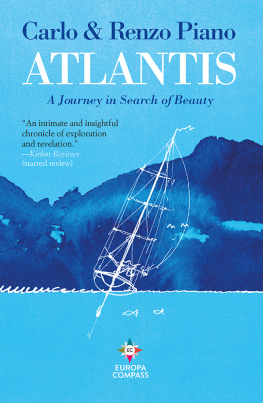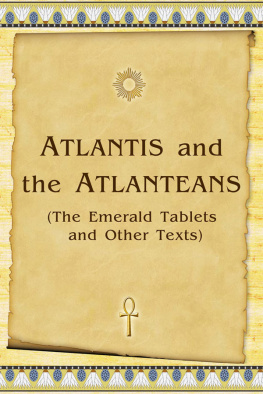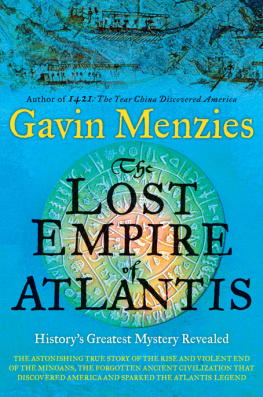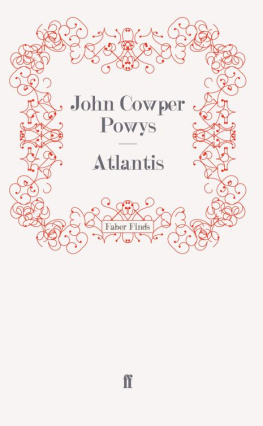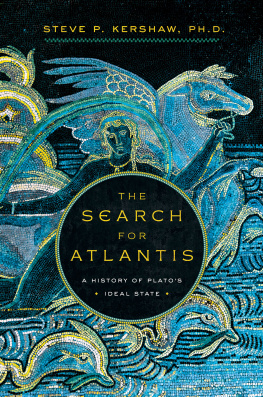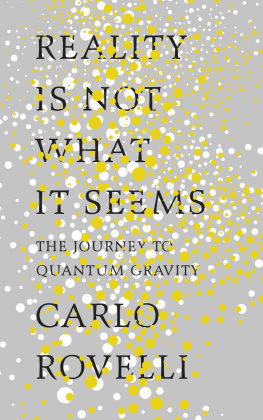ATLANTIS
To all those
looking for Atlantis
Text Carlo Piano in Serif
Text Renzo Piano in Sans-serif
1.
M ACAIA
A long sea. So long and lazy it darkens your thoughts and makes your stomach churn, while low-lying clouds dissolve in water. Up seems down. The few drafts of air are hot and full of moisture. Back home wed say the sirocco was blowing; I dont know what they say around here. I do know that in Croatia they call this wind jugo and in Libya ghibli. Often yellow with the sands of Africa, it scatters the dust of the desert far and wide.
Everything around us is still, except for the long waves. Our latitude is 71836 South, our longitude 722416 East. Were in the middle of nowhere, in the heart of the Indian Ocean, off the coast of the Chagos Islands, which I had never heard of before. For military reasons, we cannot land. So secret are the army bases that fifty years ago all of the inhabitants were deported to Mauritius, never to return. They still protest.
I wonder by what twist of fate Ive boarded this ship traveling away from the world I know at nine knots an hour. I wonder what my father is doing here, looking from the upper deck at the murky line between the sky and the sea, a line swallowed up by the surreal haze of macaia.
He rests his elbows on the railing and looks out at the ocean, the one view available. He is measuring the length of the waves with his eyes. Measure, measure, measurehes obsessed. In his tattered right pocket, he keeps a yellow roll-up tape measure, which he regularly uncoils. He also attempts to guess distances and weights, a kind of personal challenge.
In my opinion these waves have a period of one hundred meters and are three meters high. The long waves come from far away, from all the waters further east: the Andaman Sea, Pulau Nias, Sumatra, Java, the Sunda Strait. A wave is pure energy, rising from one point and propagating through space and time. In reality, it is pure momentum. It carries nothing on its back.
I like measuring these long waves. To measure is to gesture towards knowledge, to attempt to understand. My friends call me the Surveyor, but I dont just survey the land. I also measure the many angles and points of the sea, too. I measure everything. Things and distances.
The extraordinary engineer Peter Rice and I used to bet on the dimensions of things all the time: the diameter of a table, the speed of a train, the depth of a lake. Whoever guessed closest won.
One thing about getting into the habit of making measurements in your head is that you end up imagining not only what you see but the invisible forces at work: torsion, inertia, and the effects of the wind, heat, cold, and earthquakes.
Fortunately, hidden in the hull of this 170-metric-ton ship is a gyroscope, which makes the ship more stable. Keeps it from rolling. Do you know how a gyroscope works? Its a rotational device that, owing to the law of conservation of angular momentum, tends to maintain its axis of rotation in a fixed direction...
I have a vague idea about what a gyroscope is, but the waves are a total mystery. Researchers say some waves roam the ocean for more than a century before crashing into a cliff or splashing against a pier covered with mollusks. Could that be true? If so, then no one, not even my father, can say for certain where these waves come from. If they are a century old, they could be the same that swallowed, say, the ocean liner Principessa Mafalda off the coast of Brazil. Or carried messages in bottles at the turn of the twentieth century. There are all kinds of waves: transverse waves, square waves, breaking waves, barrel or cyclic waves. They can be spectacular and thunderous or insignificant and deceptively harmless. In this sliver of the Indian Ocean, the waves are especially long and unpleasant. My father cant stand them. I can barely stand them. Macaia changes peoples personalities, darkens even the most cheerful among us.
There is another mystery that troubles me: what color is the sea? When were young were convinced its blue or azure. Nonsense. Its daubed with turquoise, indigo, gray, green, emerald, and pure see-through. When its overcast its gunmetal, in the dark its black, at sunrise and sunset it appears flecked with gold. Sometimes there are whitecaps. Winds affect the color: the sirocco turns it silver, the tramontane glass. For Homer, it became the color of wine at dusk, but Im not so sure I trust him. They say he was blind.
The truth is the color of the sea is undefinable. No one knows what color it is. Every wave has its own, different light. My father can measure them all he wants, but in my opinion waves will always elude mathematical models.
On days like today, when there is macaia, the sounds of the ocean are muffled. Detecting them is a struggle. The caws of seagulls fade and the winds become at most a murmur. All you hear is the splash of water against the hull and the thrum of the 1500-horsepower diesel engines. Macaia is a motionless and metaphysical haze, inside and out, a weird weather condition that often occurs off the coast of Genoa. The sirocco blankets the sky with clouds, creating a dreamlike atmosphere. Time stops, movements dwindle, the mood grows melancholic. Technically known as advection fog, macaia forms when moist air passes over cold ground, but for those who live in the Mediterranean, macaia is a fog that descends and makes your heart ache.
Some say the name macaia derives from the Greek word malakia: a languor that afflicts body and soul. Others trace it back to Arabic and others still to the Latin word malacia, which means, among other things, apathy. Greek, Italian, Genoese, Arabic, Venetianin the great lake of the Mediterranean, words, like cultures, mix, overlap, trade places. One language isnt enough to describe all the wonders of the sea.
There must be something in the chemical makeup of salt that chases off happy thoughts. Some people claim that the sea is the dwelling place of what we have lost, what we had wished for, our broken dreams, grief, and spilt tears.
The Measurer
Sailing is slowness and silence. Aboard a boat you lower your voice and look up at the sky. When he was still a kid, my father built a sailboat by hand in his garage in Pegli. He was sure he had correctly measured the garage door, but in order to get the boat out he had to demolish the wall. According to family lore, my grandpa became livid. Maybe that triggered my fathers mania for measurement.
Sailing changes the rhythm of life as it is lived on firm ground. The way you walk, the way you think, the way you talk. The terminology is bizarre: the stern, the bow, downwind, upwind, keel over, drift leeward. You have to be more cautious, something you tend to forget when you first board. As soon as my father boards a ship he writes TAKE CARE NOT TO GET HURT in green marker on a Post-it, which he posts in plain view. If you dont slow down, a broken foot is the least you can expect. You can even fall down a hatch. I once fell a few meters and landed in the bathroom, but I was a kid at the time, with flexible bones.
On a ship there is quiet, a sense of respite, a state of suspension. The experience is as psychological as it is physical, since youre buoyant, lulled by gentle movements. And not so gentle.
Macaia , this tedious roll while everything around you is at a standstill, makes you nauseated. Any chance of a fresh, northerly breeze? A good close-hauled heel, sitting leeward to run your hand over the water?
For me, traveling by boat is enchanting. You experience slowness, silence, suspension. You fly and float, but you never touch the ground.

